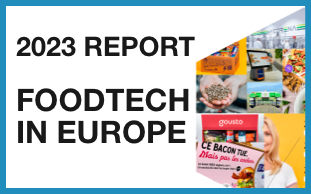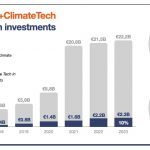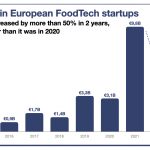In the past couple of years, the FoodTech ecosystem has started a move from digital services to hardware. If it was visible before, it was quite small. Now, we can spot multiple $10M+ deals each week involving hardware development and facilities being built (for many use, from aquaculture to vertical farming to alternative protein development).
In the meantime, the financing has not really evolved at the same speed. It is mostly old-fashioned equity investment (VCs mostly). Solutions exist for well-developed companies (such as public markets, even if the latest startups’ that went public did not perform amazingly). But, very few have been developed for startups which need lots of capital to grow fast but are still risky.
This is problematic for many reasons:
- Simply put, hardware startups need huge amounts of cash to build facilities and/or buy products from manufacturers. And VCs, as deep-pocketed as they are, don’t have the means to finance hardware and factories. Deals such as the $1B investment from Softbank’s Vision Fund into Nuro (delivery robots) may not repeat.
- In areas such as indoor farming, alternative proteins, or robotics, the investments that will be needed will be in the hundreds of billions if we want these technologies and companies to have an impact and create a more sustainable food system. Building a cellular agriculture facility costs tens of millions, producing a few thousand tons of meat. Even if the cost is lowered dramatically, the fact is that we consume hundreds of millions yearly. So, to start building up the first bricks of this industry, while its future is still risky, new financing tools will be needed.
- The job of VCs is to finance risk, not factories. New, disruptive ventures won’t be financed if all their capital is allocated there.
In a word, new means of financing will be needed. Some ideas are emerging around leasing, such as:
- Real estate deals such as the recent $1B financing deal between Realty Income and Plenty. The company will buy and then lease to the startup its vertical farms. Other vertical farming startups have also done the same thing, as they are having some troubles.
- Kiwibot, a delivery robotics startup, signed a $10M deal to sell and lease back its robots.

The challenge of how to finance the development of hardware and infrastructure for food startups will keep growing. VCs and other private investors will reach the limit of what they can fund. We expect to see more and more such deals, even in somewhat early-stage startups, which need vast amounts of cash to buy or build valuable assets such as robots and facilities. Here, public wealth funds could also play a major role and could help to attract startups to manufacture in their own countries (as the Gulf and Singapore sovereign wealth funds are doing with alternative proteins).
Have a great week,
Matthieu







